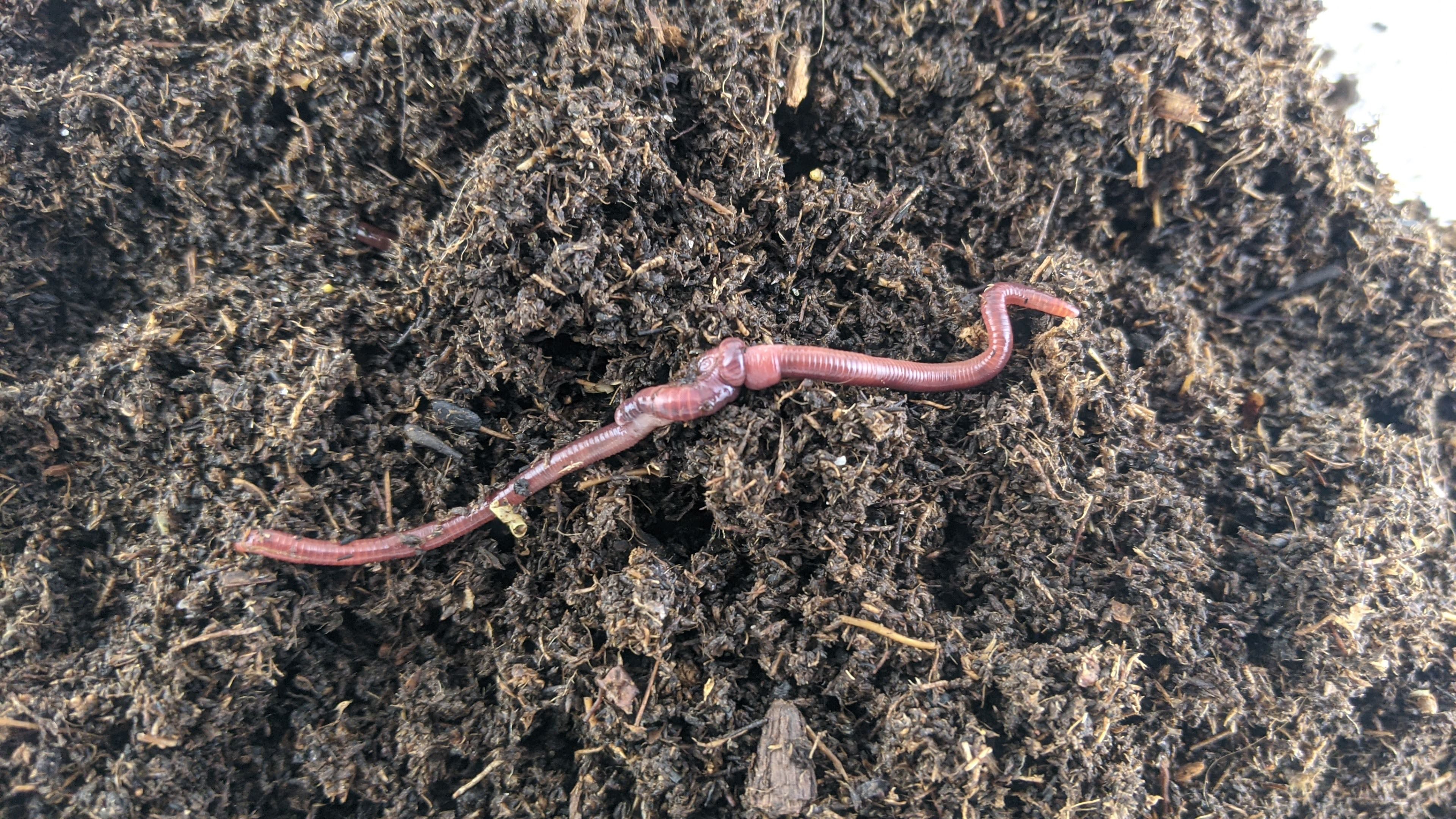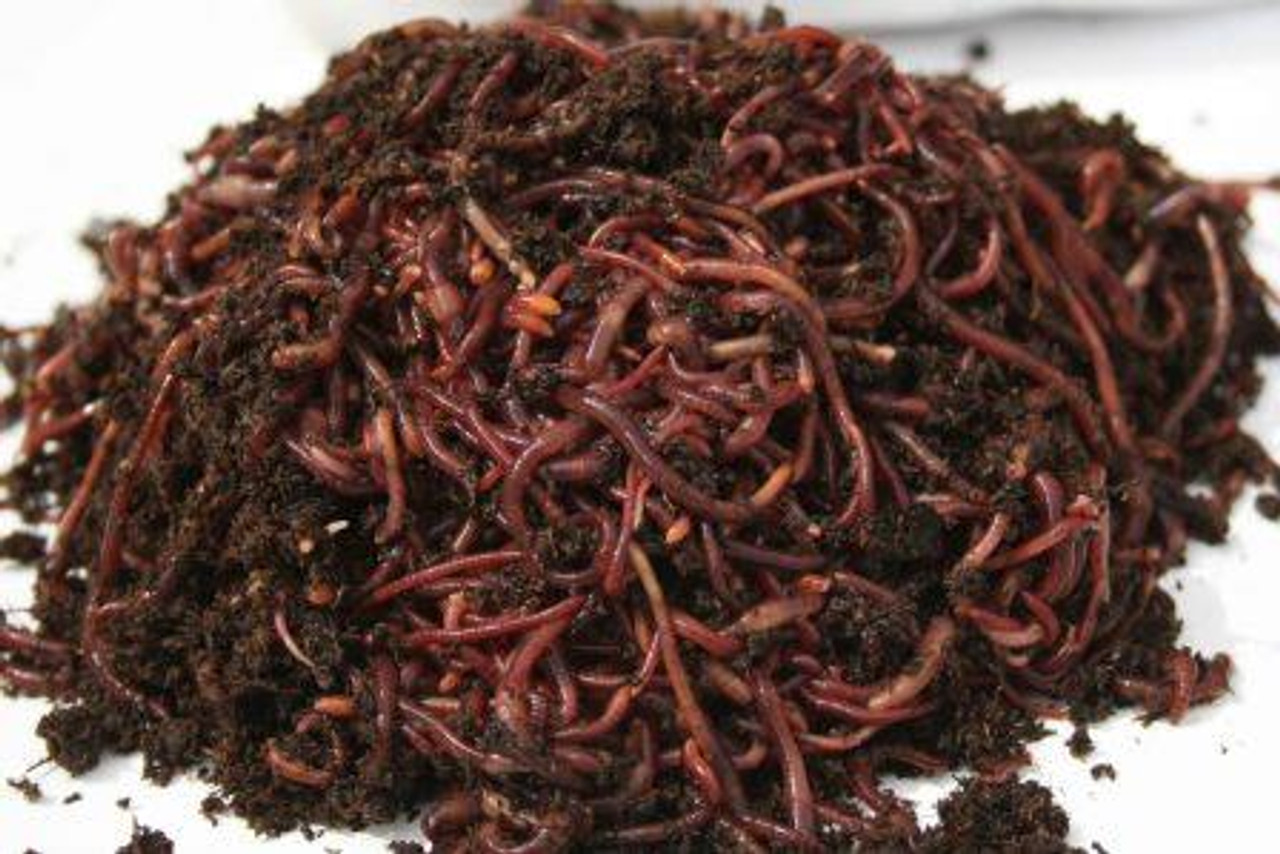Open the Advantages of Red Wiggler Composting for Your Organic Yard
Open the Advantages of Red Wiggler Composting for Your Organic Yard
Blog Article
Utilizing the Power of Red Wiggler Composting: An In-Depth Consider the Environmental and Agricultural Advantages of This All-natural Waste Reduction Approach
The practice of red wiggler composting stands for a compelling crossway of ecological stewardship and agricultural technology, providing a lasting service to the expanding challenges of waste administration and dirt deterioration. Via the natural process of vermicomposting, natural waste is transformed into a beneficial resource that not only improves dirt but likewise adds to a significant reduction in land fill contributions and greenhouse gas discharges. As we check out the complex benefits of this technique, we discover just how it can improve agricultural methods and advertise eco-friendly awareness, prompting a better assessment of its possible impact on our ecological communities and communities.
What Are Red Wiggler Worms?
Red wiggler worms, scientifically understood as Eisenia fetida, are a types of earthworm especially adjusted for composting and natural waste failure. These worms thrive in the nutrient-rich environment of decomposing raw material, making them suitable for vermicomposting systems. Expanding to a size of around 3 to four inches, red wigglers are characterized by their reddish-brown coloration and distinctive banding patterns along their bodies.
Unlike other earthworm varieties, red wigglers prefer to inhabit the top layers of dirt and natural debris, where oxygen levels are higher and food resources are plentiful. Their physical adaptations permit them to process natural products effectively; they possess a well-developed digestion system that allows them to convert waste into nutrient-rich castings, often described as "black gold" in horticulture and agricultural contexts.
Eisenia fetida plays a vital role in the ecosystem by facilitating the disintegration procedure, improving soil framework, and promoting microbial task. Given their one-of-a-kind attributes and environmental importance, red wiggler worms have actually ended up being a central element in sustainable waste monitoring methods and organic horticulture efforts, adding considerably to ecological health and wellness.
Benefits for Soil Health
The incorporation of red wiggler worms in composting systems offers substantial advantages for soil health and wellness. These worms play a vital role in the disintegration process, breaking down organic issue into nutrient-rich vermicompost. This natural fertilizer boosts dirt framework, water, and oygenation retention, adding to an extra favorable atmosphere for plant development.
Vermicompost is rich in essential nutrients such as phosphorus, nitrogen, and potassium, which are vital for plant growth (Red Wiggler Composting). The presence of useful microbes in vermicompost additionally promotes dirt wellness by improving vitamins and mineral schedule and suppressing soil-borne pathogens. This vibrant communication promotes a robust soil ecological community that sustains sustainable agricultural techniques
In addition, red wigglers assist in the formation of humus, a stable natural matter that enhances dirt fertility and durability. This enhanced natural material not only boosts dirt texture yet likewise enhances its capacity to sequester carbon, mitigating environment change influences.
Integrating red wiggler composting into farming systems can, consequently, lead to healthier dirts, higher plant yields, and boosted sustainability. Therefore, welcoming this natural waste decrease method can generate profound benefits for both the setting and agricultural performance.
Influence On Waste Decrease
Incorporating red wiggler worms right into composting systems significantly minimizes waste, transforming organic products that would otherwise add to landfills into beneficial compost. This technique, called vermicomposting, efficiently processes cooking area scraps, yard waste, and other eco-friendly materials, causing a substantial decrease in the quantity of waste sent out to land fills. According to the Environmental Protection Company, natural waste consists of a significant part of land fill materials, producing damaging greenhouse gases as it decomposes anaerobically.
By using red wigglers, a highly effective composting agent, homes and companies can draw away a considerable amount of organic waste from these landfills. Each extra pound of red wigglers can consume and refine concerning half a pound of natural waste daily, bring about an exceptional decrease in general waste generation.
Additionally, the application of vermicomposting assistances regional waste administration efforts and promotes a circular economy, in which waste is changed right into a resource. As neighborhoods progressively adopt this practice, the collective result on waste decrease ends up being apparent, fostering an extra lasting atmosphere and encouraging liable waste monitoring methods. Accepting red wiggler composting not only minimizes waste problems but also boosts neighborhood awareness concerning lasting living.
Enhancing Agricultural Practices
Utilizing red wiggler worms in farming methods can considerably boost dirt health and plant efficiency. These worms play a vital duty in the composting process, damaging down organic issue into nutrient-rich vermicompost. This all-natural fertilizer boosts dirt water, aeration, and framework retention, which are important for durable plant development.
Additionally, the spreadings produced by red wigglers are abundant in important nutrients, such as potassium, nitrogen, and phosphorus, promoting healthier plants with greater yields. The microbial task boosted by these worms also adds to a thriving soil environment, increasing biodiversity and durability versus illness and parasites.

In addition, the use of vermicompost can improve dirt pH levels, making nutrients a lot more available to plants. Red Wiggler Composting. Therefore, farmers can grow much healthier plants while concurrently adding to dirt conservation initiatives, inevitably creating a more sustainable this contact form farming future
Beginning With Composting
The main active ingredient in red wiggler composting is natural waste, which can include kitchen area scraps, backyard waste, and paper products. This balance promotes an optimum environment for red wigglers, which are the essential microorganisms in this composting approach.
Picking a suitable composting system is similarly vital. Worm containers can be designed for indoor or outside usage, and they should offer appropriate water drainage and oygenation. It is suggested to start with a handful of worms-- around one extra pound of red wigglers for every single one extra pound of waste generated once a week.

Verdict

The method of red wiggler composting stands for a compelling crossway of environmental stewardship and farming technology, supplying a sustainable option to the growing obstacles of waste management and soil destruction.Additionally, the application of vermicomposting supports regional waste administration efforts and promotes a circular economic situation, where waste is transformed into a source. As neighborhoods progressively adopt this practice, the advancing impact on waste reduction becomes noticeable, promoting a more sustainable setting and motivating responsible waste administration practices. The main active ingredient in red wiggler composting is natural waste, which can consist of kitchen area scraps, yard waste, and paper items.In recap, red wiggler composting presents a sustainable remedy for organic waste monitoring, yielding nutrient-rich vermicompost that significantly boosts dirt wellness.
Report this page